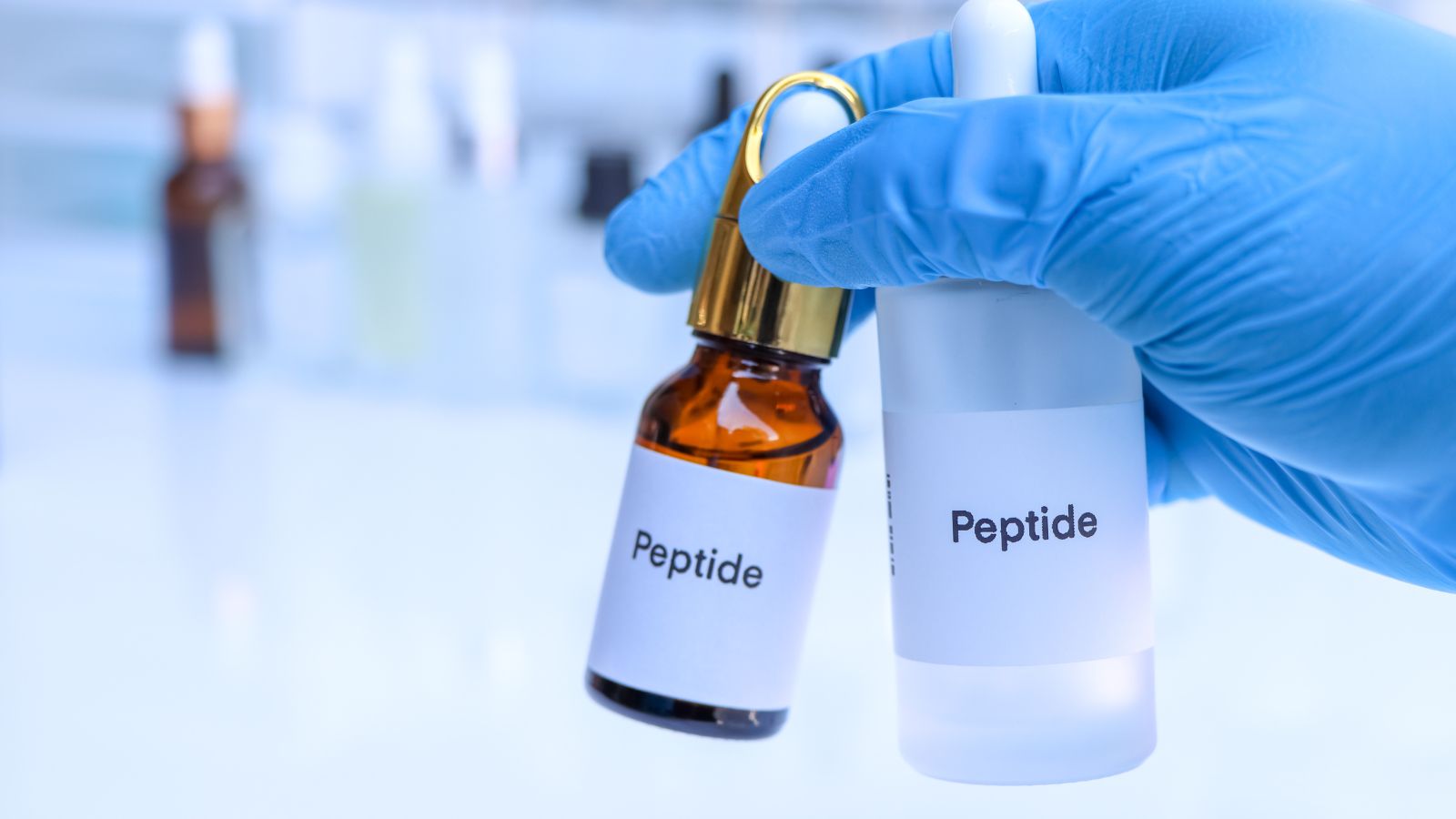
Hydrolyzed Collagen vs Collagen Peptides: What You Need to Know
Photo Credit: Canva Pro
Collagen is a protein that helps our bones, ligaments, and skin stay healthy. "Collagen peptides" and "hydrolyzed collagen" are words you may have seen on supplement labels.
Hydrolyzed Collagen vs Collagen Peptides: Are they the same thing? We'll explain the difference, tell you which one works better, show you how to spot good products, and help you decide which one is best for your health goals. These simple facts will help you decide if taking collagen is right for you.
Hydrolyzed Collagen vs Collagen Peptides: What’s the Difference and Which Is Right for You?
Photo Credit: Canva Pro
It's important to know the difference between Hydrolyzed Collagen vs Collagen Peptides when picking a collagen supplement. Lots of people don't know this, but both types of collagen proteins are used to help with joint pain, skin health, and other things.
This part talks about the differences between collagen terms and how they can help you reach your health goals.
Understanding What Each Term Really Means
When full-length collagen proteins are broken down, they release both hydrolyzed collagen and collagen peptides. It's called enzymatic hydrolysis, and it breaks down collagen into smaller pieces that the body can use. The body's skin cells, connective tissues, and other parts depend on these peptides.
-
Hydrolyzed collagen: Collagen broken down into smaller peptides through enzymatic hydrolysis, not water alone.
-
Collagen peptides: Short amino acid chains produced through the hydrolysis of full-length collagen proteins.
-
Collagen hydrolysate: Another term that refers to the same thing as hydrolyzed collagen.
-
Collagen peptide supplements: Types of collagen supplements that are often sold as being easier to absorb.
Molecular Differences and Benefits
The size and shape of each collagen form are what make them different. It's easier for the body to use smaller peptides, and they can have more health benefits, like helping the skin stay moist and tissues heal.
-
Hydrolyzed collagen peptides: Sizes usually between 2,000 and 10,000 daltons, and the gut can easily absorb them.
-
Marine collagen: Known for having a lot of Type I, which helps skin stay flexible.
-
Bioactive peptides: Some amino acids, such as Pro-Hyp, help the body make more collagen and slow down the aging process of the skin.
-
Best use: Those who want to improve skin health, get rid of wrinkles, and make more collagen.
Is Hydrolyzed Collagen Better Absorbed?
Photo Credit: Canva Pro
A common question people have when they are trying to decide between collagen and collagen peptides is how well they are absorbed. It is very important that your body can absorb the supplement well, or you won't see any results.
Hydrolyzed collagen peptides are broken down to a size that can pass through the stomach lining and enter the bloodstream more easily.
What Makes Hydrolyzed Collagen More Digestible
Collagen must be small enough to be taken in. Collagen proteins that are found in nature are too big for the body to use effectively. This is one reason why hydrolyzed collagen is often chosen for dietary supplements.
-
Natural collagen: <30,000 daltons, which are too big to take in.
-
Human stomach pores: ~4,000 daltons in size.
-
Hydrolyzed collagen: Typically ranges from 2,000 to 5,000 daltons after enzymatic hydrolysis, facilitating absorption.
-
Nano-collagen: Peptides with molecular weights under 2,000 daltons may be marketed as nano-collagen, though this term lacks standardized scientific validation.
How Absorption Impacts Benefits
When you absorb amino acids faster and better, your body can get the ones it needs to repair and rebuild. This makes collagen supplements work better, especially for joint pain, skin health, and wound healing.
-
Skin hydration: More moisture in the skin helps keep it from aging.
-
Skin elasticity: Helps make things firm and smooth.
-
Joint support: Brings nutrients to the connective tissues.
-
Better recovery: Helps heal tissues after surgery or injury.
How to Know If Collagen Is Hydrolyzed?
Photo Credit: Canva Pro
How can you be sure that the collagen powder or capsule you buy is hydrolyzed collagen? Labels can be hard to understand. Make sure the collagen peptide supplement you're buying has been processed and tested properly.
Label Clues and Keywords to Look For
Supplements with collagen are not all the same. They use hard-to-understand words or hide important information. Figure out how to read labels and know the differences between collagen types and how they are shown.
-
Look for: “hydrolyzed collagen,” “collagen peptides,” or “collagen hydrolysate.”
-
Molecular weight: Less than 5,000 daltons is best for better absorption.
-
Mention of: “enzymatic hydrolysis” or “process called hydrolysis.”
Signs of a High-Quality Product
Some collagen peptide supplements haven't been tested or aren't made well. Products that are good for you are clear and have ingredients that help, like hyaluronic acid or vitamin C, which boost collagen synthesis.
-
Trusted brands: Share what you're getting, like grass-fed beef or wild fish.
-
Third-party tested: Keeps people safe from heavy metals.
-
Added nutrients: Complete amino acids, bone broth, or hyaluronic acid are what you should look for.
-
No fillers: There is no sugar or artificial flavor in this collagen powder.
Is it better to take hydrolyzed collagen or collagen peptides?
Photo Credit: Canva Pro
Many people want to know which is better: hydrolyzed collagen vs collagen peptides. Truth be told, these two words usually mean the same thing. When collagen proteins are broken down, they turn into peptides that the body can use.
It is thought that these smaller amino acids help keep the skin healthy, fix damaged tissue, and promote a healthy immune response. What product you choose will depend on your health goals, the source of the collagen, and your own tolerance.
What the Experts and Research Say
The experts all agree that both collagen peptides and hydrolyzed collagen are types of highly bioavailable protein. This means they are easy for your body to take in and use. Since collagen is the most abundant protein in our bodies, getting it in the right form can help our skin, joints, and muscles.
-
Collagen peptides: Animal-based, like beef, chicken, or fish.
-
Hydrolyzed collagen: Hydrolyzed collagen is derived by breaking down the triple-helix structure of native collagen into bioavailable peptide chains.
-
Benefits of collagen: Helps the body make collagen and slows down the aging process.
-
Positive effects: Include changes that make your skin, joints, gut, and even blood vessels better.
Choosing the Right Form Based on Your Health Goals
As far as health goes, different kinds of collagen are better than others. Some are good for the skin, others are good for the joints, digestion, or internal organs. To pick the best supplement, you need to know which types of collagen meet your specific needs.
-
Type I and III: Best for keeping skin healthy, getting rid of wrinkles, and making it look younger.
-
Type II: Good for joint health and can help reduce pain from cartilage-related problems.
-
Type IV: aids in digestion and is necessary for the structure of internal organs.
-
Other factors: See if the product has extra vitamins and minerals, like vitamin C, that can help raise collagen levels.
What does FullyHealthy.com say about collagen or collagen supplements?
FullyHealthy.com is a store that helps people who have to follow special diets by selling clean, allergen-free goods. The platform doesn't promote a specific collagen supplement, but it does support using good supplements as part of a healthy lifestyle.
This is especially helpful for people who want to boost collagen production without adding anything harmful to their food or supplements.
Focus on Clean, Allergen-Friendly Nutrition
FullyHealthy has products that work with a number of different diets, which makes living a healthy life easier. Their goals are good for people who want safe, natural, and filler-free collagen peptides from animals.
-
Clean collagen options: Items that don't contain allergens, artificial sweeteners, or preservatives.
-
Ideal for sensitive users: There is less chance of stomach problems or reactions.
-
Natural whole-food approach: Helps keep collagen levels up with foods that are high in nutrients.
How to Integrate Collagen into AIP and Specialty Diets
People who are on elimination diets like the Autoimmune Protocol (AIP) often have a hard time finding products they can trust. FullyHealthy makes it easy by selling things that help you learn about collagen, its benefits, and how to use it in healing diets.
-
Use collagen in meals: You can mix powders with smoothies or soups.
-
Combine with whole foods: Bone broth, leafy greens, and citrus can all help your body with collagen production.
-
Support for aging and recovery: Good for old people or people who are sick and have less collagen.
-
Maintain consistency: When taken every day, it helps build stronger muscles, smoother skin, and better digestion.
Final Thoughts
Figuring out how collagen proteins and peptides help the body can assist you in picking the best supplement. As the body produces less collagen over time, adding more collagen through diet or supplements can support skin, joints, and cartilage.
Better elasticity, fewer wrinkles, and stronger tissues are all benefits of collagen. If you want to look younger or keep your joints healthy, knowing the early signs of aging and collagen loss can help you take action.
Pick clean sources that have been checked out. The Cleveland Clinic notes that collagen supplements may support skin and joint health; however, clinical benefits depend on product quality and individual response.
FAQs
What are collagen peptides used for?
Collagen peptides are used to support skin, elasticity, and cartilage. They also help with wrinkles and are one of the benefits of collagen.
Does the body produce collagen proteins naturally?
Yes, the body produces collagen proteins, but with age, natural collagen production declines, and some individuals may benefit from supplementation to support connective tissue and skin structure.
Is type III collagen important?
Yes, type III is found in skin and cartilage and supports elasticity. It works with peptides and helps the body stay youthful.
Can I get benefits of collagen from food?
Yes, foods like bone broth can give you collagen peptides, but supplements may provide higher concentrations of hydrolyzed collagen, though whole foods support overall collagen synthesis via nutrient cofactors.
What does Cleveland Clinic say about collagen?
Cleveland Clinic states collagen supplements can help with skin, joints, and collagen proteins needed for cartilage and elasticity.

Leave a comment